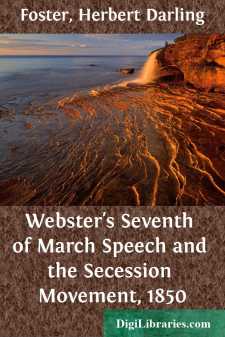History
- Africa 30
- Americas (North Central South West Indies) 50
- Ancient 68
- Asia 58
- Australia & New Zealand 8
- Canada 41
- Caribbean & West Indies 1
- Civilization 20
- Eastern Europe 12
- Europe 310
- Expeditions & Discoveries 60
- General 77
- Historical Geography 1
- Jewish 9
- Latin America 3
- Medieval 8
- Middle East 14
- Military 248
- Revolutionary 8
- Study & Teaching 5
- United States 353
- Western Europe 56
- World 13
History Books
Sort by:
WALDEN Economy When I wrote the following pages, or rather the bulk of them, I lived alone, in the woods, a mile from any neighbor, in a house which I had built myself, on the shore of Walden Pond, in Concord, Massachusetts, and earned my living by the labor of my hands only. I lived there two years and two months. At present I am a sojourner in civilized life again. I should not obtrude my affairs so...
more...
A BRIEF SKETCHOF THELIFE AND CHARACTER OF DAVID WALKER. It is generally the desire of the reader of any intellectual production, to know something of the character and the life of the author. The character of David Walker is indicated in his writings. In regard to his life, but a few materials can be gathered; but what is known of him, furnishes proof to the opinion which the friends of man have...
more...
I. THE ISONZO FRONT1My first impressions of the Italian war centre upon Udine. So far I had had only a visit to Soissons on an exceptionally quiet day and the sound of a Zeppelin one night in Essex for all my experience of actual warfare. But my bedroom at the British mission in Udine roused perhaps extravagant expectations. There were holes in the plaster ceiling and wall, betraying splintered laths,...
more...
This is a reprint, somewhat amplified, of an article printed recently in the New York Times. The original article was written before the recommendations of the Ways and Means Committee of the House of Representatives were reported. In a time of patriotic exaltation and of universal obligation and readiness to make great sacrifices to bring a most just and righteous war to a successful conclusion, the...
more...
by:
Hartley Withers
I THE OUTLOOK FOR CAPITAL September, 1917 The Creation of Capital—The Inducement—War and Capital One of the questions that are now most keenly agitating the minds of the investing public and of financiers who cater for its wants, and also of employers and organisers of industry who are trying to see their way into after-the-war conditions, is that of the supply of capital. On this subject there are...
more...
by:
Allen Johnson
CHAPTER I. THE COMMANDER-IN-CHIEF Moving among the members of the second Continental Congress, which met at Philadelphia in May, 1775, was one, and but one, military figure. George Washington alone attended the sittings in uniform. This colonel from Virginia, now in his forty-fourth year, was a great landholder, an owner of slaves, an Anglican churchman, an aristocrat, everything that stands in...
more...
CHAPTER I. washington receives cheering news from greene—siege of fort ninety-six—success of partisan corps elsewhere—capture of augusta by the americans—rawdon approaches ninety-six—greene abandons the siege—rawdon retires to orangeburg followed by greene—greene encamps on the high hills of santee—stewart and cruger at orangeburg—rawdon goes to england—battle at eutaw...
more...
I. During the session of Congress of 1849-1850, the peace of the Union was threatened by problems centering around slavery and the territory acquired as a result of the Mexican War: California's demand for admission with a constitution prohibiting slavery; the Wilmot Proviso excluding slavery from the rest of the Mexican acquisitions (Utah and New Mexico); the boundary dispute between Texas and...
more...
INTRODUCTORY.—“Our Mississippi, rolling proudly on,Would sweep them from its path, or swallow up,Like Aaron's rod, those streams of fame and song.”Mrs. Hale. The valley of a river like the channel of a man's career, does not always bear proportion to the magnitude or volume of the current, which flows through it. Mountains, forests, deserts, physical barriers to the former—and the...
more...
The object of a census is scientific. A census is a sociological investigation. And the object of the science of sociology is the happiness of the people. This science and its methods differ sharply from all other sciences. Its peculiarity lies in this, that sociological investigations are not conducted by learned men in their cabinets, observatories and laboratories, but by two thousand people...
more...











